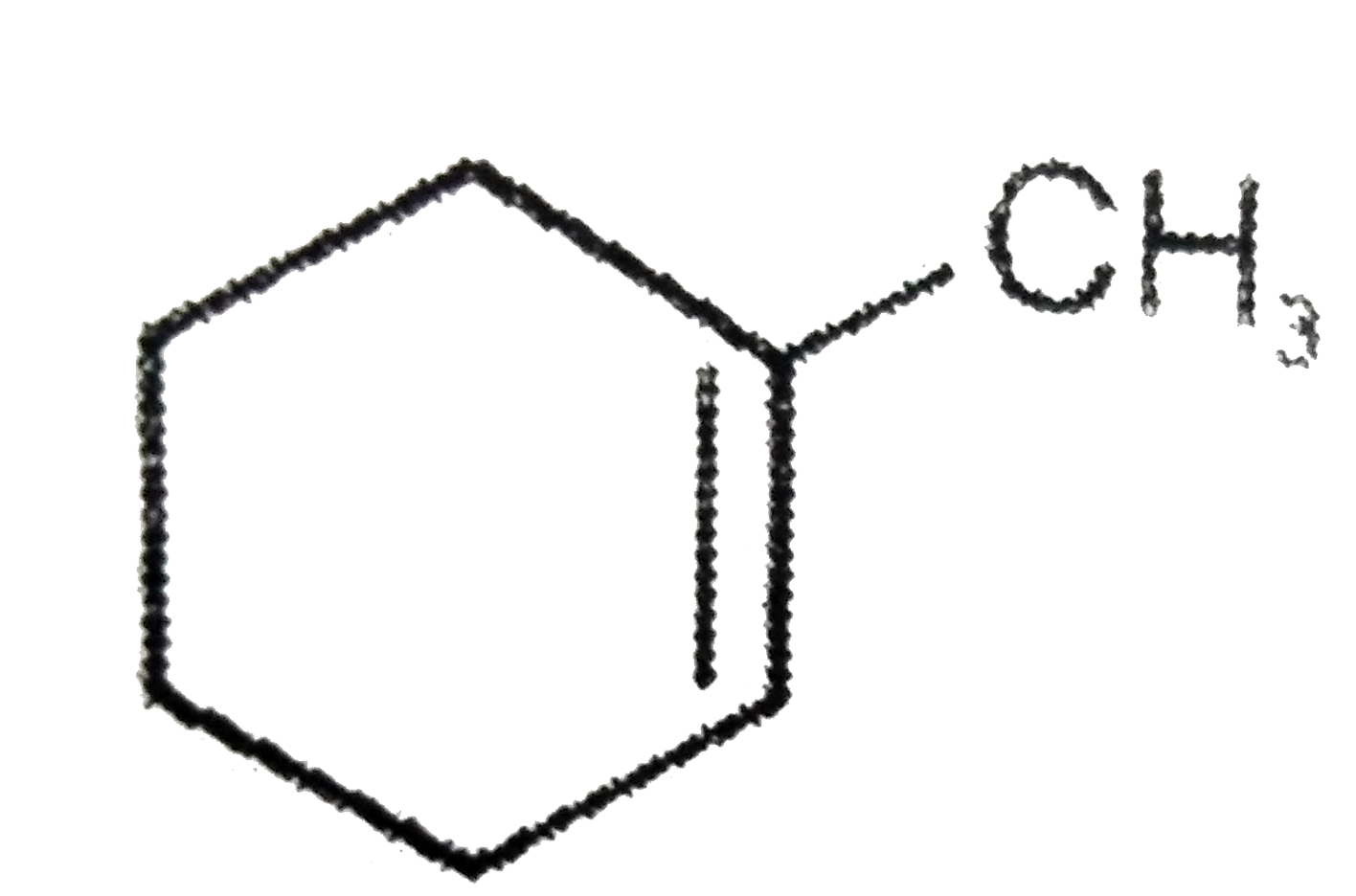Which of the following on reductive ozonolysis will give only glyoxal?
Benzene
Toluene
Ethene
Isobutene
To solve the question of which compound will yield only glyoxal upon reductive ozonolysis, we will analyze each of the given compounds step by step.
Step 1: Understand Reductive Ozonolysis
Reductive ozonolysis is a reaction where alkenes or alkynes react with ozone (O3) followed by a reducing agent (commonly zinc and water) to form carbonyl compounds. The reaction typically cleaves double bonds and can yield aldehydes or ketones.
Step 2: Analyze Each Compound
1. Benzene (C6H6):
- Benzene does not have a double bond in the traditional sense for ozonolysis, but it can be considered as an aromatic compound. However, in the context of the question, we can consider a hypothetical ozonolysis of a substituted benzene.
- Upon ozonolysis, benzene can yield glyoxal (CHO-CHO) as it can form an ozonide that can break down into two molecules of glyoxal.
- Conclusion: Benzene can yield glyoxal.
2. Toluene (C6H5CH3):
- Toluene undergoes ozonolysis to yield products such as benzaldehyde and formaldehyde, but not exclusively glyoxal.
- Conclusion: Toluene does not yield only glyoxal.
3. Ethene (C2H4):
- Ethene reacts with ozone to form two molecules of formaldehyde (HCHO) upon reductive ozonolysis.
- Conclusion: Ethene does not yield glyoxal.
4. Isobutene (C4H8):
- Isobutene undergoes ozonolysis to yield acetone (CH3COCH3) and formaldehyde (HCHO), not glyoxal.
- Conclusion: Isobutene does not yield glyoxal.
Step 3: Final Conclusion
Based on the analysis, the only compound that yields glyoxal upon reductive ozonolysis is Benzene.
Answer: Benzene
---
Reductive ozonolysis is a reaction where alkenes or alkynes react with ozone (O3) followed by a reducing agent (commonly zinc and water) to form carbonyl compounds. The reaction typically cleaves double bonds and can yield aldehydes or ketones.
- Benzene does not have a double bond in the traditional sense for ozonolysis, but it can be considered as an aromatic compound. However, in the context of the question, we can consider a hypothetical ozonolysis of a substituted benzene.
- Upon ozonolysis, benzene can yield glyoxal (CHO-CHO) as it can form an ozonide that can break down into two molecules of glyoxal.
- Conclusion: Benzene can yield glyoxal.
- Toluene undergoes ozonolysis to yield products such as benzaldehyde and formaldehyde, but not exclusively glyoxal.
- Conclusion: Toluene does not yield only glyoxal.
- Ethene reacts with ozone to form two molecules of formaldehyde (HCHO) upon reductive ozonolysis.
- Conclusion: Ethene does not yield glyoxal.
- Isobutene undergoes ozonolysis to yield acetone (CH3COCH3) and formaldehyde (HCHO), not glyoxal.
- Conclusion: Isobutene does not yield glyoxal.
Based on the analysis, the only compound that yields glyoxal upon reductive ozonolysis is Benzene.
Topper's Solved these Questions
Similar Questions
 on reductive ozonolysis yeilds
on reductive ozonolysis yeilds
View SolutionReductive Ozonolysis of
 will give
will give
View SolutionWhich of the following compound on oxidative ozonolysis give malonic acid as only product ?
View SolutionWhich of the following on reduction with LiAlH4 will give ethyl
alcohol ?
View SolutionO-xylene on ozonolysis will give:
View Solution(1) Which alkyne on reductive ozonolysis will produce glyoxal only?
(2) Which gas is produced on dehydrohalogenation of ethyl iodide?
View SolutionWhich of the following will give same product on ozonolysis

View SolutionWhich of the following compound gives CO2 on reductive ozonolysis-
View SolutionWhich alkene upon reductive ozonolysis will give acetone as the product?
View Solution on ozonolysis gives :
on ozonolysis gives :
View Solution
